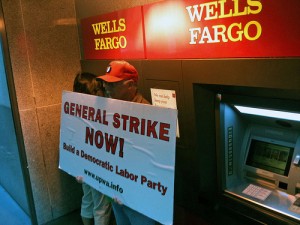After more than a year of negotiations, the settlement between state attorneys general and the biggest banks that service mortgages has been filed in federal court. The $26 billion deal, which was announced with much fanfare last month, requires five banks to reduce by $10 billion the principal that borrowers owe on underwater homes -- properties worth less than what's owed on the mortgage.

It’s the largest settlement involving a single industry since the 1990s multistate suit against tobacco companies, and the Justice Department has advertised it as “the largest federal-state civil settlement ever obtained.”
Last year California Attorney General Kamala Harris temporarily pulled out of negotiations. In February, she said the original "offer on the table was simply inadequate and insufficient.” Touting the final settlement, she said “we were very determined to make sure that California, the hardest hit in the country, would receive its fair share.” The state has seven of the nation’s 10 hardest-hit cities. The final deal should deliver $18 billion to the state’s homeowners over three years.
But, some critics say, the big deal is really not so big, relative to the problem it attempts to address.
“Certainly this isn't going to have a huge impact on that aggregate level,” says Ted Gayer, senior fellow at the Brookings Institution. “I don't know that it was meant to." Relying on different government and industry sources, Gayer estimates that of 11.1 million underwater borrowers, only a half-million are eligible. (See this chart for Gayer's analyis of what type of borrowers will qualify for help under the settlement.)